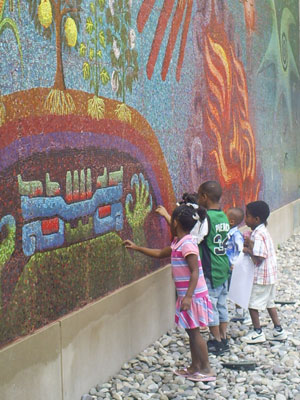All Nonfiction
- Bullying
- Books
- Academic
- Author Interviews
- Celebrity interviews
- College Articles
- College Essays
- Educator of the Year
- Heroes
- Interviews
- Memoir
- Personal Experience
- Sports
- Travel & Culture
All Opinions
- Bullying
- Current Events / Politics
- Discrimination
- Drugs / Alcohol / Smoking
- Entertainment / Celebrities
- Environment
- Love / Relationships
- Movies / Music / TV
- Pop Culture / Trends
- School / College
- Social Issues / Civics
- Spirituality / Religion
- Sports / Hobbies
All Hot Topics
- Bullying
- Community Service
- Environment
- Health
- Letters to the Editor
- Pride & Prejudice
- What Matters
- Back
Summer Guide
- Program Links
- Program Reviews
- Back
College Guide
- College Links
- College Reviews
- College Essays
- College Articles
- Back
Orphan Lessons MAG
As I step off the bus into the muggy, pitch-black night of Honduras, I panic as someone tries to wrestle away my suitcase. I clutch the handle, struggling to see the face that matches the prying hands. As my eyes acclimate, I see eight-year-old Naoun, who is mute because of the domestic violence that victimized him in his infancy. Disarmed by his smile, I give up possession of the bag, which he shifts to one hand. Without a word, he slips his free hand into mine.
In my junior year, I went to El Progreso to volunteer for Students Helping Honduras, a nonprofit organization founded by my mother’s former college student. Every day for two weeks, I taught math and English to the children of Copprome Orphanage. Every night, the children crowded around a table to pore over old textbooks. Although many of the answers in the books were appallingly incorrect, these antiques were the children’s sole source of education, and they worshiped the content, regardless of its accuracy.
Clearly they realized education was the only way to escape the poverty. Moved by such perseverance, I tried to nurture their dreams by enlisting them to create a mural depicting their futures. The result was a tree rising proudly above a pasture, the broad leaves sprouting graduation caps, books, art palettes, doctors’ coats, and other symbols of their dreams.
On one particularly sticky night, 13-year-old Julissa approached me shyly and asked, “¿Puede leer esto conmigo?” She wanted me to read her a dog-eared postcard. “¡Claro!” I answered willingly. Printed on the card was an English version of the Apostles’ Creed. Watching her brows knit in concentration as she tried to memorize the difficult words, I was overwhelmed by her faith. She, like the other orphans, was the casualty of a dysfunctional family, impoverished living conditions, and social ostracism, and it impressed me that she could sustain such unwavering faith. Despite their backgrounds, these children had a passion for life and gratitude for each blessing.
The children of Copprome changed my attitude toward life and others, as well as myself. The orphans’ zeal was contagious, and I returned home hopelessly infected. Aware of my capacity to appreciate and cross cultural barriers, I am now impassioned to reach out to others. I plan to major in anthropology in college because I believe understanding the roots of cultures will nurture my tolerance and compassion for others, qualities that will help me to contribute to our global society in a concrete way.

Similar Articles
JOIN THE DISCUSSION
This article has 0 comments.
